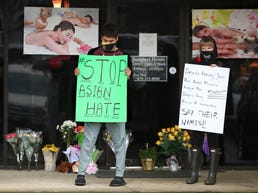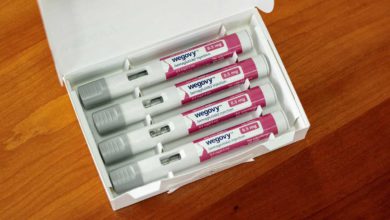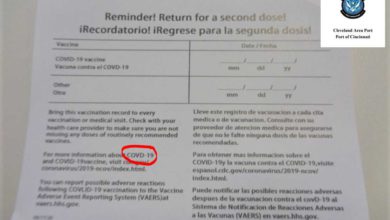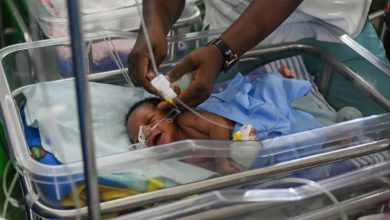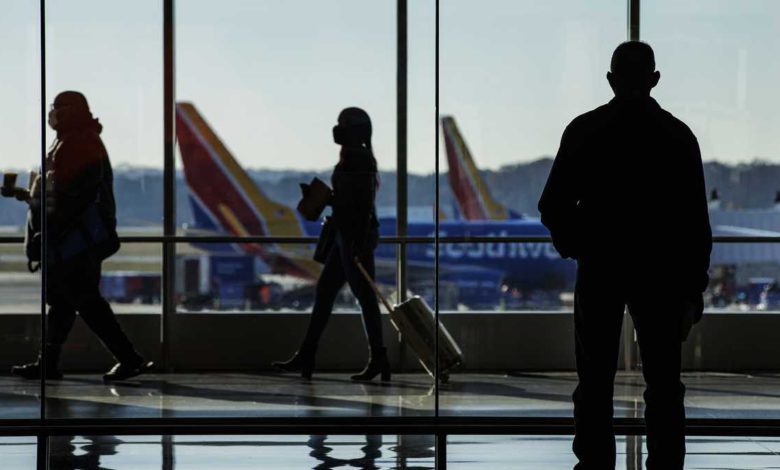

The CEOs of two of the nation's major airlines say they don't think wearing masks on planes does much to help limit exposure to COVID-19.The comments from American Airlines CEO Doug Parker — the nation's largest carrier — and Southwest CEO Gary Kelly came during a hearing about the financial support that airlines received from the federal government in 2020 and 2021. But the topic of masks arose via a question from Sen. Roger Wicker, the ranking Republican on the Senate committee holding the hearing."I think the case is very strong that masks don't add much, if anything, in the air cabin environment. It is very safe and very high quality compared to any other indoor setting," said Kelly.Both Kelly and Parker, who each have announced plans to retire as CEOs in the coming months, mentioned that high-grade HEPA air filters on planes capture virtually all airborne contamination and air quality is helped by how frequently cabin air is exchanged with fresh air from outside the cabin."I concur. An aircraft is the safest place you can be," said Parker. "It's true of all of our aircraft — they all have the same HEPA filters and air flow."After the hearing, American Airlines tried to walk back Parker's remarks. It issued a statement claiming that his concurrence with Kelly was on the point about the quality of the air in the aircraft cabin, not mask requirements.Sara Nelson, the president of the Association of Flight Attendants, testified at the hearing that not all aircrafts are equipped with the same quality of air filters. For example, some older planes do not have HEPA filters, she said.The mask requirement is still a source of controversy. Much of the steep rise in incidents involving unruly passengers over the last two years have revolved around passengers being ordered to wear masks."I think that is probably for the medical community to decide rather than me," Nelson added. "What I will add is that the studies that have been done ....were done with mannequins that were sitting straight forward with masks on, not removing them, not eating.""It is important to recognize that the safe, controlled environment on planes...includes the HEPA filters that are not on all aircraft," she concluded.Masks on planes are required by the federal government, following the guidance of the Centers for Disease Control. The DOT did not immediately respond to a request for comment on the testimony.The remarks by Kelly and Parker were criticized by one committee member, Sen. Ed Markey, a Massachusetts Democrat."I'm shocked that some of the CEOs here today have suggested we no longer need masks mandates on planes," he said. "In the face of Omicron, children under five who still cannot be vaccinated....and that we still allow unvaccinated people on planes." He said it was "immoral" to take the position that people on planes could be forced to sit next to unvaccinated people who are not wearing masks.Nelson, who Markey was questioning, agreed that while she hopes that one day masks will not be required, she does not support lifting the mask mandate at this time."I believe that the government has taken a very responsible approach to this," she said. "We believe it should continue to stay in place. It's a workplace safety issue. We do need a consistent message though. It troubles me to hear different messages. I would hope we are going to stay on the same messages and follow the medical experts and do what's necessary to keep everybody safe."Nelson said that the confidence in the safety of air travel is the reason people are willing to buy airline tickets in near pre-pandemic levels today. She said that the mask mandate is one of the factors leading to that confidence by airline passengers.
The CEOs of two of the nation's major airlines say they don't think wearing masks on planes does much to help limit exposure to COVID-19.
The comments from American Airlines CEO Doug Parker — the nation's largest carrier — and Southwest CEO Gary Kelly came during a hearing about the financial support that airlines received from the federal government in 2020 and 2021. But the topic of masks arose via a question from Sen. Roger Wicker, the ranking Republican on the Senate committee holding the hearing.
"I think the case is very strong that masks don't add much, if anything, in the air cabin environment. It is very safe and very high quality compared to any other indoor setting," said Kelly.
Both Kelly and Parker, who each have announced plans to retire as CEOs in the coming months, mentioned that high-grade HEPA air filters on planes capture virtually all airborne contamination and air quality is helped by how frequently cabin air is exchanged with fresh air from outside the cabin.
"I concur. An aircraft is the safest place you can be," said Parker. "It's true of all of our aircraft — they all have the same HEPA filters and air flow."
After the hearing, American Airlines tried to walk back Parker's remarks. It issued a statement claiming that his concurrence with Kelly was on the point about the quality of the air in the aircraft cabin, not mask requirements.
Sara Nelson, the president of the Association of Flight Attendants, testified at the hearing that not all aircrafts are equipped with the same quality of air filters. For example, some older planes do not have HEPA filters, she said.
The mask requirement is still a source of controversy. Much of the steep rise in incidents involving unruly passengers over the last two years have revolved around passengers being ordered to wear masks.
"I think that is probably for the medical community to decide rather than me," Nelson added. "What I will add is that the studies that have been done [on masks]....were done with mannequins that were sitting straight forward with masks on, not removing them, not eating."
"It is important to recognize that the safe, controlled environment on planes...includes the HEPA filters that are not on all aircraft," she concluded.
Masks on planes are required by the federal government, following the guidance of the Centers for Disease Control. The DOT did not immediately respond to a request for comment on the testimony.
The remarks by Kelly and Parker were criticized by one committee member, Sen. Ed Markey, a Massachusetts Democrat.
"I'm shocked that some of the CEOs here today have suggested we no longer need masks mandates on planes," he said. "In the face of Omicron, children under five who still cannot be vaccinated....and that we still allow unvaccinated people on planes." He said it was "immoral" to take the position that people on planes could be forced to sit next to unvaccinated people who are not wearing masks.
Nelson, who Markey was questioning, agreed that while she hopes that one day masks will not be required, she does not support lifting the mask mandate at this time.
"I believe that the government has taken a very responsible approach to this," she said. "We believe it should continue to stay in place. It's a workplace safety issue. We do need a consistent message though. It troubles me to hear different messages. I would hope we are going to stay on the same messages and follow the medical experts and do what's necessary to keep everybody safe."
Nelson said that the confidence in the safety of air travel is the reason people are willing to buy airline tickets in near pre-pandemic levels today. She said that the mask mandate is one of the factors leading to that confidence by airline passengers.
Source link

